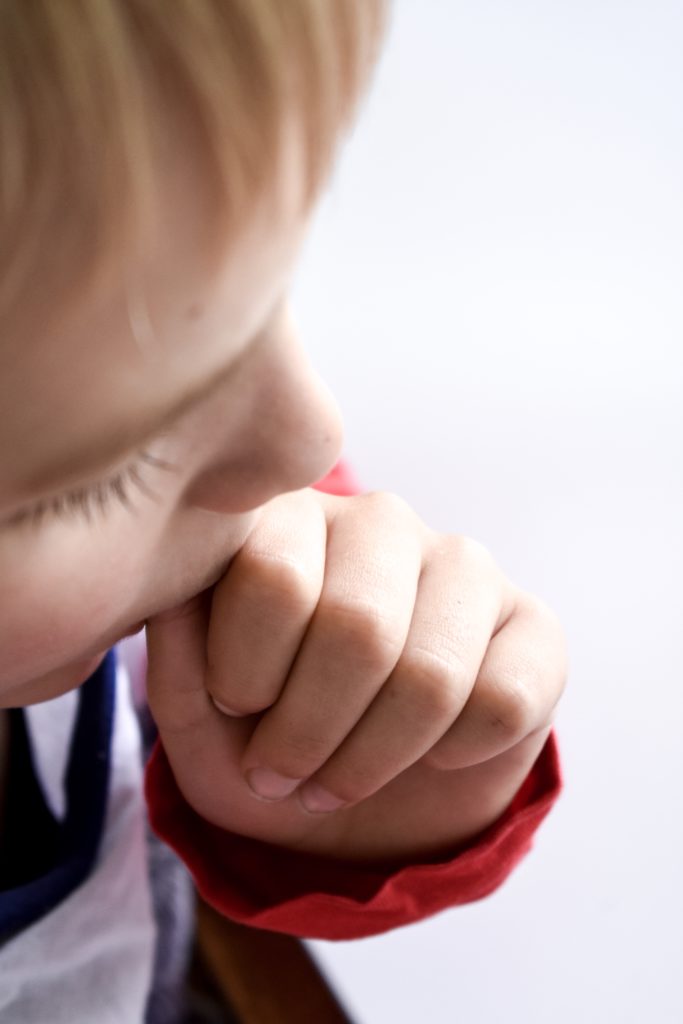Menu
Until what age is thumb sucking normal?

All parents want their children to grow up health with beautiful smiles…..that’s why one of the most disconcerting habits children develop is thumb sucking.
If your preschooler, aged five, is still sucking their thumb, you might be a bit worried.
You might be wondering if this habit of theirs will continue or if it’s a problem…..after all, the last thing you want is another thing to worry about.
However, to address this behaviour, you first need to know when thumb sucking is considered normal and when your child needs assistance to overcome their habit.
NORMAL THUMB SUCKING
Thumb sucking begins in the womb. Babies are genetically wired to suck for nutrition. Sucking, especially thumb sucking, is also a baby’s coping mechanism to comfort themselves when they’re anxious, or settling, particularly when they’re separated from their parent.
Thumb sucking triggers the production of happy hormones in babies and helps them feel secure and comfortable.
UNTIL WHAT AGE IS THUMB SUCKING NORMAL?
As children develop teeth and their stomachs become more developed to digest other types of food, they no longer need to rely on sucking for feeding.
They can also speak or communicate their hunger in other ways rather than sucking – they should eventually stop sucking habits themselves.
However, if your three-year-old is still sucking their thumb, it could begin to affect their teeth alignment (and their speech).
WHY DO SOME CHILDREN CONTINUE TO SUCK THEIR THUMBS?
Toddlers may still suck their thumb because of the gratifying feeling they get. This can eventually develop into an addictive habit. But some children may have underlying health issues which might make it harder to stop the habit.
HOW CAN YOU STOP YOUR CHILD FROM SUCKING THEIR THUMB?
Whatever happens, never resort to spanking, scolding, or humiliating your child. Remember, your child won’t stop their thumb sucking because of stress – in fact stress can sometimes make a habit worse!
Let your child observe their peers and learn about what is “normal.” Your child’s brain is still in the process of developing and learning from social situations, and they are also sensitive to comments made by their peers. They should be able to learn and understand why they need to stop sucking their thumb.
Sit down with your child and explain to them kindly and calmly the consequences of sucking their thumb. Arouse their curiosity, and have them ask questions. They should be able to process their behaviour during your heart-to-heart talk, which may eventually lead to them quitting their habit themselves.
If they tell you that they’re having difficulty getting rid of their thumb sucking, offer them assurance and encouragement.
You might like to design a reward system that would help motivate them to try to stop.
A combination of these constructive strategies will help your child stop their habit without tears and tantrums.
Remember, go gently, and always be kind. And if you need help, seek attention from the experts.
We are The Thumbsucking Clinic and we have Big Solutions for Little Smiles!
[/vc_column_text][/vc_column][vc_column column_padding=”no-extra-padding” column_padding_position=”all” background_color_opacity=”1″ background_hover_color_opacity=”1″ column_shadow=”none” column_border_radius=”none” width=”1/2″ tablet_text_alignment=”default” phone_text_alignment=”default” column_border_width=”none” column_border_style=”solid”][image_with_animation image_url=”1326″ alignment=”” animation=”Fade In” border_radius=”none” box_shadow=”none” max_width=”100%”][/vc_column][vc_column column_padding=”no-extra-padding” column_padding_position=”all” background_color_opacity=”1″ background_hover_color_opacity=”1″ column_shadow=”none” column_border_radius=”none” width=”1/1″ tablet_text_alignment=”default” phone_text_alignment=”default” column_border_width=”none” column_border_style=”solid”][/vc_column][/vc_row]
Share
Tweet
Share
Pin
